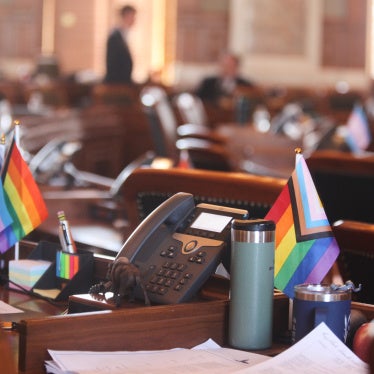After weeks of anticipation, the World Cup finally kicks off today in São Paulo. And while most sports fans are gleefully anticipating the chance to watch Ronaldo, Messi, Neymar, and many of the other great players, we human rights activists are more than a little nervous. After all, given the presence in the competition of any number of rights-abusing countries, how can we balance our love of the game with our commitment to human rights?
First, the good news. Many of the worst violators -- including Sudan, Sri Lanka, Turkmenistan, Belarus, North Korea, Zimbabwe, Uzbekistan -- have not made it to Brazil. This affirms our belief that countries respecting human rights tend to produce better football players. Still, given the large number of problematic countries in the competition, there are many dilemmas for the rights-respecting soccer fan.
Some of the problems have already begun with the World Cup preparations themselves, which have generated a number of human rights violations across Brazil. These have included the use of disproportionate force against mostly peaceful demonstrators in a country that already has high levels of police violence, use of torture, and appalling prison conditions. Even today, protestors and journalists were tear-gassed outside the stadium before the match began.
But it's once the championship is in full swing that the real issues will start to crop up. How can a human rights activist focus on the action when Algeria (restriction of freedoms of assembly and association and prosecutions of union leaders) takes on Russia (worst crackdown on civil liberties since the end of the Soviet Union, egregious anti-LGBT discrimination and abuses in north Caucasus)? What about when Australia (punitive and illegal policies against the rights of refugees and asylum seekers) faces Spain (proposed restrictions on reproductive rights and failure to protect all those facing evictions). Or when England (serious abuses of migrant domestic workers and allegations of detainee abuses in Iraq by British armed forces) plays Italy (racism and xenophobia towards migrants, forced returns of asylum seekers)? And forget about when Colombia (guerrillas and paramilitaries kill and forcibly displace with impunity) tackles Ivory Coast (impunity, corruption, land conflicts and proliferation of small arms)!
You see the problem, right? Come June 16, when Iran plays Nigeria, how are we going to appreciate the game while thinking about political prisoners, discrimination against minorities, coerced confessions, and rampant use of the death penalty (including against child offenders). Then there's the fact that women are banned from soccer stadiums on the Iranian side, but we also can't forget the heavy-handed violence from security forces, abducted girls, and massive corruption in Nigeria.
And then there is the United States-Germany match, which is stacking up as the Surveillance Bowl, pitting the National Security Agency against Angela Merkel's outrage with the monitoring of her cell phone calls, not to mention the American record on indefinite detention in Guantanamo, unaccountability for targeted killings, and harsh sentencing in the criminal justice system.
Keeping all of this in mind, which team should a true human rights supporter hope will lift the trophy? Well, neutrality and impartiality are key principles of international human rights work, so I really can't say very much at all. (Besides, with an English father, Irish mother, French-Brazilian wife and two American children, I have to be really careful about opening my mouth on these questions.)
But you could do a lot worse than quietly rooting for Costa Rica.








